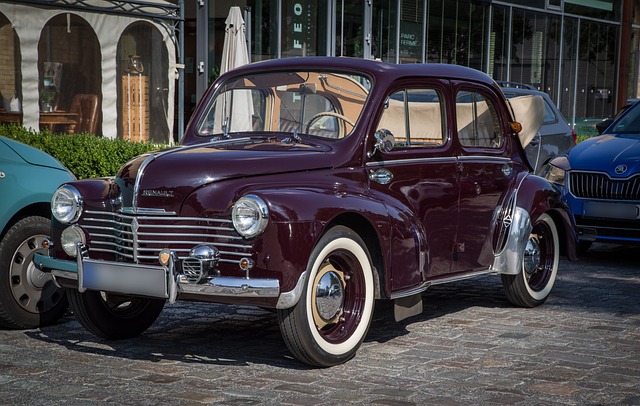Non-owner car insurance is a unique type of policy tailored for individuals who don’t own a car but still need liability protection. Whether you’re renting cars frequently, borrowing vehicles, or fulfilling legal requirements after a suspension, finding the right non-owner policy is crucial. With so many options available, how do you ensure you’re choosing the best one? This guide will walk you through the key factors to consider.
Why Choose Non-Owner Car Insurance?
Non-owner car insurance provides liability coverage for damages or injuries caused to others in an accident. It’s especially useful for:
- Drivers fulfilling SR-22 or FR-44 requirements.
- Frequent renters or borrowers of vehicles.
- Individuals between vehicles who still want to maintain continuous insurance coverage.
To understand more about what non-owner insurance covers, read here.
Key Considerations When Choosing a Policy
Selecting the right non-owner car insurance policy involves evaluating your personal needs, the coverage provided, and the insurer’s reputation. Let’s break down the essential factors.
1. Assess Your Coverage Needs
The first step in choosing the right policy is understanding what you need:
- Liability Limits:
Ensure the policy meets your state’s minimum liability requirements or opt for higher limits for added financial protection. - Optional Coverages:
Some insurers offer add-ons like medical payments coverage or uninsured/underinsured motorist protection. - Purpose of Use:
If you need the policy for legal reasons, such as an SR-22 filing, verify that the insurer provides this service. Learn more about SR-22 requirements here.
2. Compare Premiums
While non-owner car insurance is typically more affordable than standard policies, costs can vary widely. Factors influencing premiums include:
- Driving Record:
Clean records result in lower premiums, while violations or suspensions increase costs. - Location:
Premiums may be higher in urban areas with more traffic and theft risks. - Coverage Limits:
Higher limits provide more protection but increase premiums.
Comparing quotes from multiple insurers ensures you get the best value for your money.
3. Research Insurer Reputation
Not all insurance providers are created equal. It’s important to choose a reputable company known for:
- Customer Service:
Look for insurers with responsive and helpful customer support. - Claims Handling:
Research reviews to see how efficiently claims are processed. - Financial Stability:
Choose a provider with strong ratings from agencies like AM Best to ensure they can pay claims reliably.
4. Check for Discounts
Many insurers offer discounts that can lower your premiums. Common discounts include:
- Safe Driver Discount:
For maintaining a clean driving record. - Bundling Discounts:
Combining your non-owner policy with other types of insurance, such as renters or health insurance, can save money. - Payment Discounts:
Paying your premium annually instead of monthly often reduces costs.
5. Verify SR-22 or FR-44 Filing Capabilities
If you need non-owner car insurance for a suspended license, make sure the insurer can file an SR-22 or FR-44 on your behalf. This certificate proves you meet your state’s financial responsibility requirements.
For more on getting non-owner insurance with a suspended license, read here.
6. Understand Exclusions
Non-owner car insurance policies have specific exclusions, so it’s important to know what isn’t covered:
- Physical Damage:
Repairs to the car you’re driving are not included. - Personal Injuries:
Unless you add optional medical coverage, injuries to yourself won’t be covered. - Business Use:
Policies generally don’t cover vehicles used for commercial purposes, like ridesharing or deliveries.
Understanding these limitations helps you avoid unexpected out-of-pocket expenses. Learn more about what’s excluded here.
7. Compare Policy Add-Ons
Some insurers offer additional features that enhance the value of your policy. These might include:
- Roadside Assistance:
Provides towing and on-the-road emergency support. - Uninsured/Underinsured Motorist Coverage:
Covers damages caused by drivers without adequate insurance. - Medical Payments Coverage:
Pays for your medical expenses after an accident, regardless of fault.
Real-Life Example: How to Choose the Right Policy
David, a 30-year-old driver in Florida, doesn’t own a car but occasionally rents vehicles for business trips. After a DUI conviction, he needed an SR-22 filing to reinstate his license. Here’s how he chose his non-owner car insurance:
- Assessed Needs: Focused on liability limits of $100,000/$300,000 for adequate protection.
- Compared Quotes: Found premiums ranging from $300 to $600 annually.
- Checked Insurer Reviews: Chose a company with excellent customer service and fast SR-22 processing.
David secured a policy for $400 annually, meeting state requirements while staying within budget.
Tips for Finding the Best Non-Owner Car Insurance
- Start Early: Begin your search well before you need coverage to avoid rushed decisions.
- Ask Questions: Ensure you fully understand the policy’s terms, exclusions, and add-ons.
- Shop Around: Get quotes from at least three providers to compare rates and coverage options.
- Focus on Value: Don’t choose solely based on price—consider the overall benefits of the policy.
Choosing the best non-owner car insurance policy requires careful consideration of your needs, the coverage offered, and the insurer’s reputation. By comparing quotes, understanding exclusions, and taking advantage of discounts, you can secure a policy that meets your requirements without breaking the bank. Whether you’re fulfilling legal obligations, renting cars frequently, or borrowing vehicles occasionally, the right policy will provide the financial protection and peace of mind you need.



